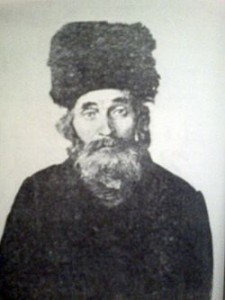Rabbi Elimelech’s True Nature
Tuesday, February 4th, 2014Click here for Hebrew text.
The Yahrzeit of Rabbi Elimelech of Lizhensk (1717-1787) is commemorated on the 21st of Adar. The following meise / hasidic tale appeared in Sefer HaHasidut, Meah Tzadikim, Raphael, Yitzchak, 1961, Tel Aviv. (Freely translated by Gabbai Seth Fishman.)
Rabbi Elimelech’s True Nature
Once, Rabbi Shneur Zalman of Liadi, author of the “Tanya“, happened to find himself in the house of one of the Rabbis who were Mitnagdim (those opposed to the Hasidic movement). The Rav Mitnaged asked him about the book, “Noam Elimelech“, and about its author, Rebbe Elimelech and, Rabbi Shneur Zalman noticed that in this Rabbi’s great scorn, the said book had been left lying under the bench upon which the Rav Mitnaged sat.
The author of the “Tanya” answered and said:
“I will paint a picture before the one who asks this question of the true nature of the author: If you Rabbis were to leave the body of the author lying under the bench, then just as this book lies there in silence, so would he be silent and not say a thing, since he is very humble and unassuming.”
(My Teacher’s House)
